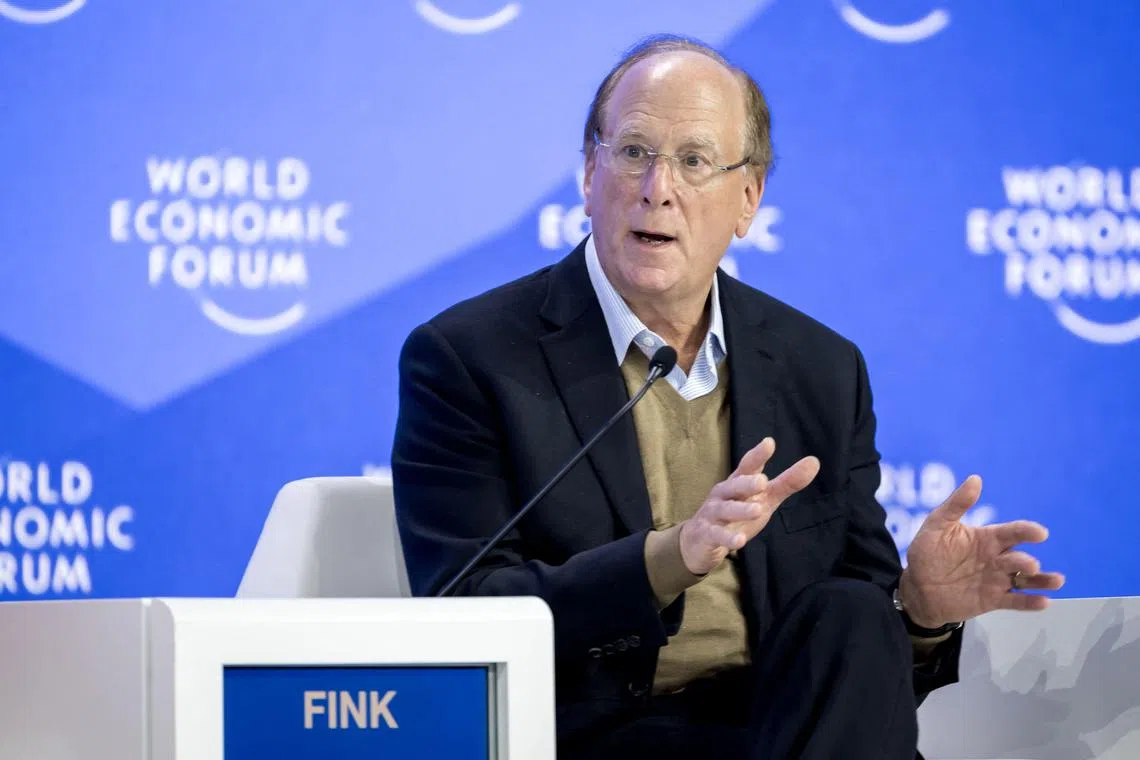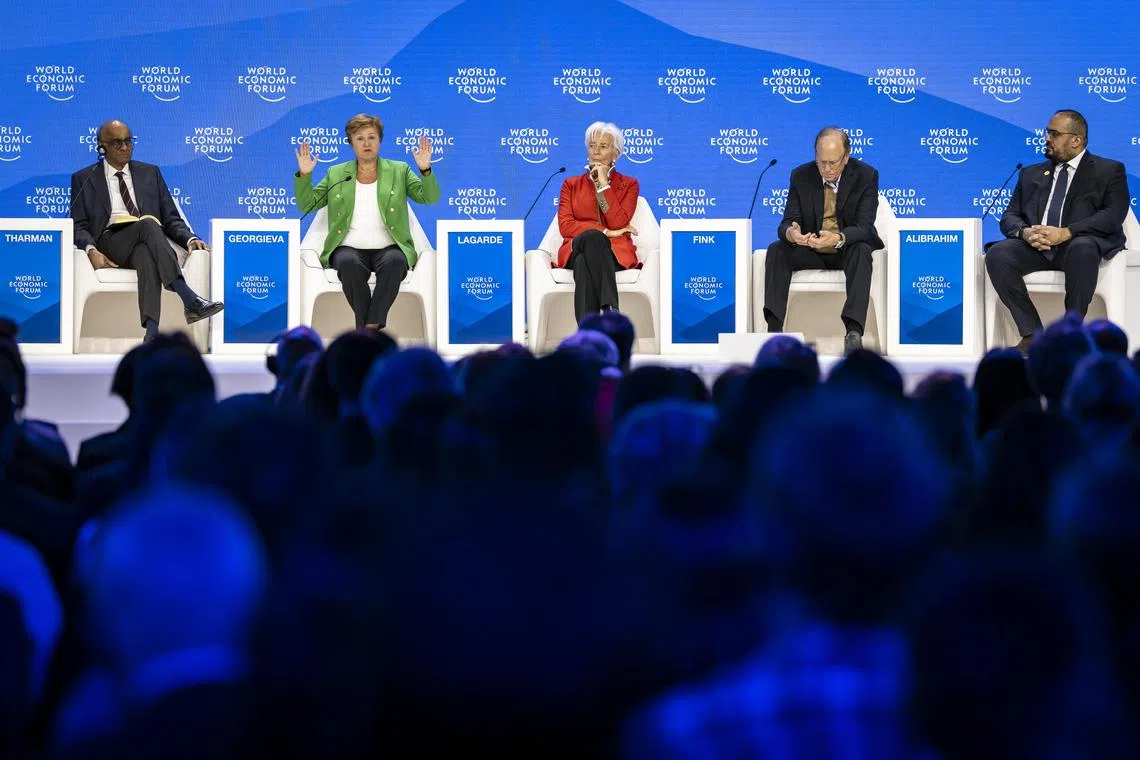Instil hope, not fear of tariffs, in global population to raise consumption and growth: BlackRock CEO
Sign up now: Get ST's newsletters delivered to your inbox

BlackRock chairman and CEO Laurence Fink was not the only US finance chief in Davos who appeared sanguine about US President Donald Trump’s proposed tariffs.
PHOTO: AFP
Follow topic:
SINGAPORE - Growing the global economy will not be achieved by fixating on tariffs, national debt or deficits, but by inspiring hope in people, said the boss of the world’s largest asset manager.
The more the global population is hopeful about the future, the more consumption there will be in that environment, which is conducive for growth, BlackRock chairman and chief executive Laurence D. Fink told a World Economic Forum (WEF) panel in Davos, Switzerland, on Jan 24.
Mr Fink cited China, which has “the highest savings rates of any major economy in the world”, as an example.
“China needs to be developing more hope within its country, and I think they’re focusing on this right now. If they could do that, they’re going to have more domestic consumption.”
The panel discussing the global economic outlook included Singapore’s President Tharman Shanmugaratnam, Saudi Arabia’s Minister of Economy and Planning Faisal Alibrahim, European Central Bank president Christine Lagarde and International Monetary Fund managing director Kristalina Georgieva.

(From left) Singapore’s President Tharman Shanmugaratnam, International Monetary Fund managing director Kristalina Georgieva, European Central Bank president Christine Lagarde, BlackRock chairman and CEO Laurence D. Fink, and Saudi Arabia’s Minister of Economy and Planning Faisal Alibrahim at a plenary session during the World Economic Forum on Jan 24.
PHOTO: EPA-EFE
When asked by CNBC’s Sara Eisen, who moderated the panel, whether geopolitical tensions – including tariffs – ranked among the panellists’ top five risks for the global outlook, Mr Fink was the only one who did not consider them to be so.
“We talk about tariffs, but what can we do about them?”
Mr Fink cited Europe, noting that it should focus on addressing its internal challenges rather than worrying about potential tariffs imposed by the US.
Since taking office on Jan 20, US President Donald Trump’s initial tariff proposals include levies of 25 per cent on Canada and Mexico
Mr Fink pointed out that Europe lags behind the US and China in innovation, entrepreneurialism and adaptability. He criticised it for “looking backwards” rather than focusing on reforms and seizing opportunities to advance.
He said “all the elements are there” for Europe to address its challenges, adding: “There’s too much pessimism in Europe. I believe it’s time to start investing back into Europe and refocusing on its potential.”
He stressed that while the US economy’s resilience transcends any single president or political party, if Mr Trump’s new trade policies unlock private capital and streamline regulations in the US, it could allow the country to be less dependent on government borrowing for growth.
The US national debt now stands at around US$36 trillion (S$48.5 trillion).
Mr Fink warned that wages could nevertheless rise, leading to higher inflation in the longer term. He thus sees the probability of interest rates moving up later in the year.
The asset manager highlighted the technological transformations shaping the world and humanity’s improved problem-solving capacity compared with a decade ago, saying he feels “more hopeful today than ever before”.
Mr Fink was not the only US finance chief in Davos who appeared sanguine about Mr Trump’s proposed tariffs.
On the sidelines of the WEF on Jan 22, JPMorgan Chase CEO Jamie Dimon told CNBC that such duties could be viewed positively.
Despite concerns of trade tensions and inflation, the head of the largest US bank by assets argued that, if implemented strategically, tariffs can safeguard American interests and lead to more favourable deals for the country.
“If it’s a little inflationary, but it’s good for national security, so be it. I mean, get over it. National security trumps a little bit more inflation.”
Mr Dimon added that tariffs can be an economic tool, or weapon, depending on how and why they are imposed.
They can also be inflationary. “Tariffs can change the dollar, but the most important thing is growth.”
Goldman Sachs CEO David Solomon will also be looking at the tariffs constructively.
Speaking to CNBC from Davos, Mr Solomon said that over time, rebalancing trade agreements could benefit US growth if done correctly, thoughtfully and quickly.
He added that some of these strategies are more about negotiation tactics than just trade.
“Used appropriately, it can be constructive. This is going to unfold over the course of the year, and we have to watch it closely.”

